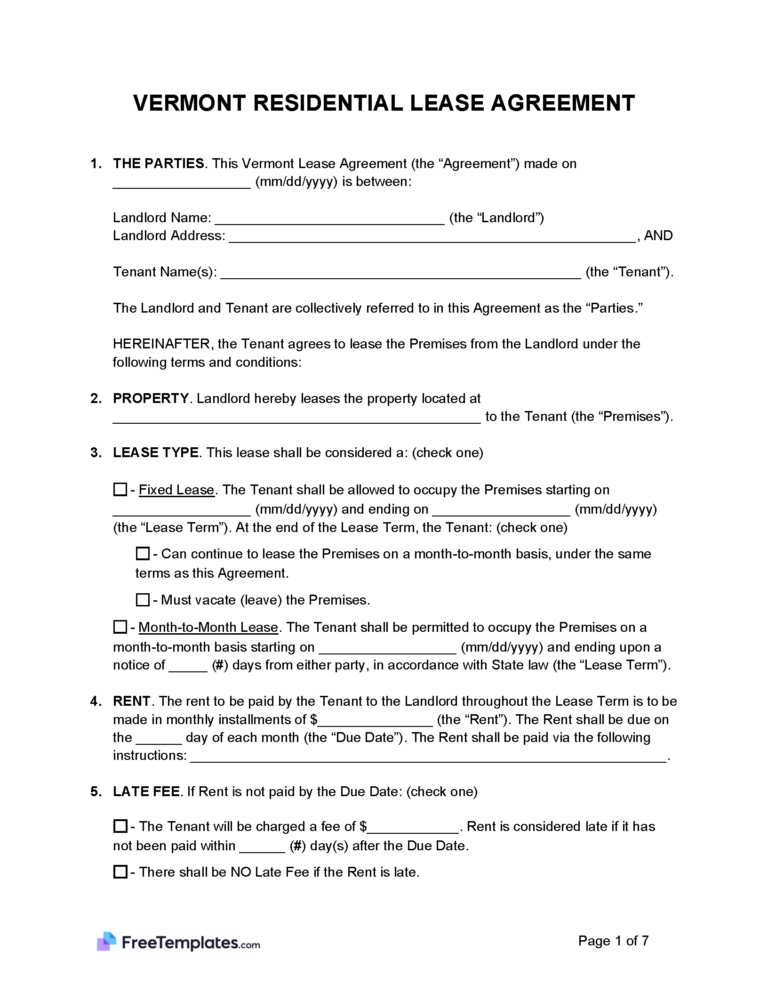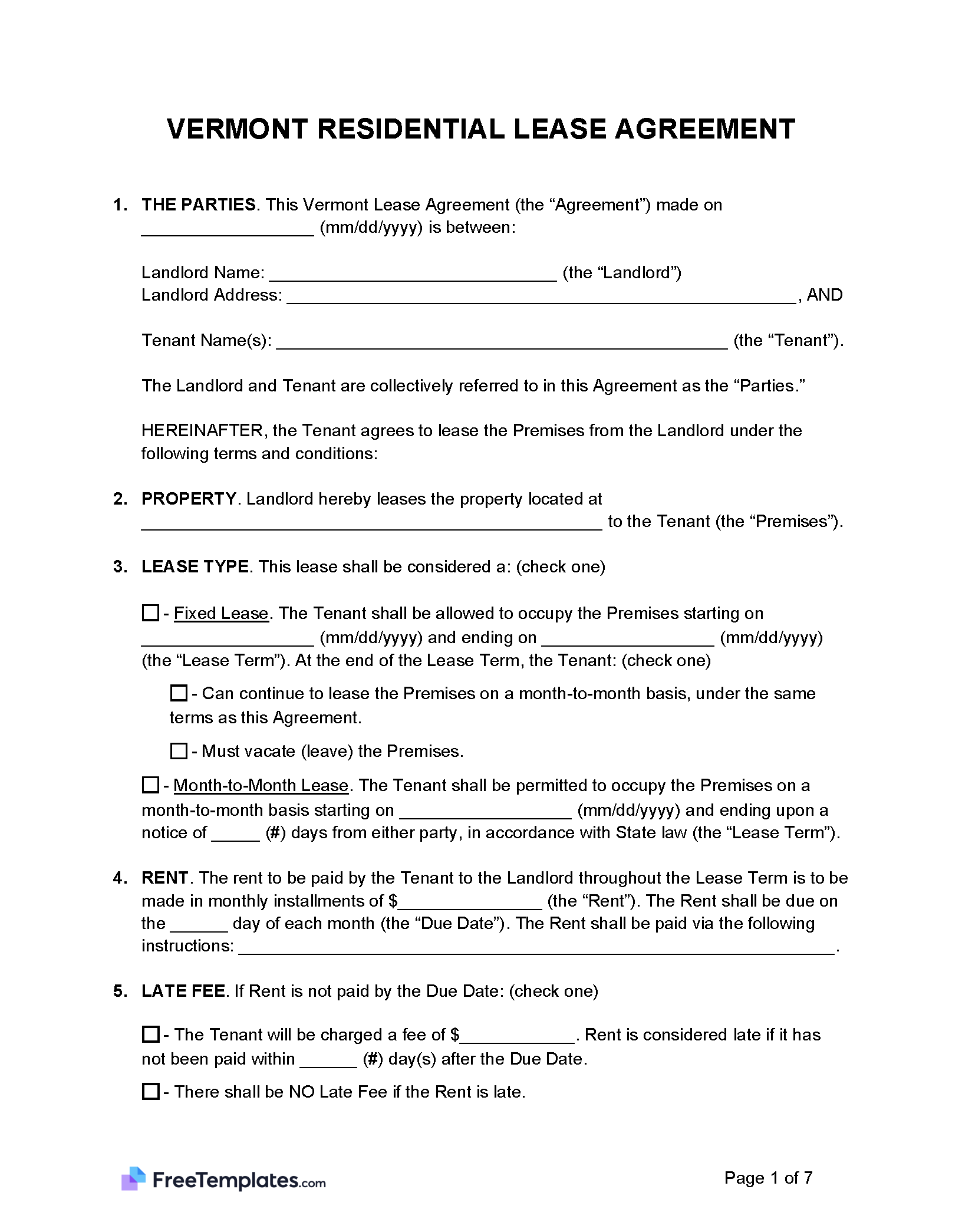By Type (6)
| Standard Lease Agreement – A typical lease in which a property is rented to a tenant for a set period of time, and both parties sign a legal document. |
| Commercial Lease Agreement – An agreement between a landlord and a business that outlines the length and terms of renting a commercial property. |
| Month-to-Month Lease Agreement – A contract between a landlord and renter that can end at the end of the month or may be renewed. |
| Rent-to-Own Agreement – A contract that states that the tenant may purchase the property and the landlord may sell it to the renter after agreeing on pricing and terms. |
| Roommate Agreement – A document stating that two people will live on the same property and share space and communal duties. |
| Sublease Agreement – A contract between an individual renter that authorizes them to rent their space to another renter for a price. |
Disclosures (1)
Lead-Based Paint Disclosure – If lead-based paint is known to exist on any property built before 1978, the landlord must disclose this information to the renter by federal law.
Security Deposit
Maximum Amount – There is no set maximum amount a landlord can charge a tenant for a rental security deposit.
Returning to Tenant – The landlord must return the security deposit to the tenant within 14 days of vacancy or lease end. (9 V.S.A. § 4461(c))
- Itemized List – If the unit is damaged or rent is unpaid, the landlord must provide a written checklist covering each item and refund the tenant within 14 days of the lease’s end. (9 V.S.A. § 4461(c))
Landlord Access
Emergency Access – In case of emergency, a landlord is allowed to enter the rental property without notice. The landlord may enter if there is a risk of danger to the property or renters (§ 4460(c))
General Access – A 48-hour notice is required for a landlord to enter the property in order to make repairs, carry out inspections, or show the property to a potential renter. (9 V.S.A. § 4460(b))
Paying Rent
Grace Period – In the state of Vermont, there are no regulations on when the rent is due; therefore, it is due on the due date agreed upon in the lease. (9 V.S.A. § 4455(a)) Failure to pay rent may result in the landlord serving a 14-day notice to quit or pay the amount due. (9 V.S.A. § 4467(a))
Maximum Late Fee – There is no maximum late fee on delinquent rent in the state of Vermont; however, the landlord may charge a “reasonable” late fee. Highgate Associates v. Merryfield (1991)
Returned Checks (NSF) – Vermont has no rules regarding how much a landlord may charge the tenant for writing a bad check.
Withholding Rent – A renter may deduct up to one-half month’s rent if they request a repair be done at the rented property and the landlord does not fix the issue within 30 days. (9 V.S.A. § 4459(a))
Reasons for Eviction (5)
Non-Payment of Rent – If the tenant does not pay rent on time, they may be served a 14-day notice to quit or vacate the premises. (§ 4467(a))
Non-Compliance – Failure to comply with the rental agreement’s terms may result in the landlord serving a 30-day notice to quit or comply with the original lease. (§ 4467(b)(1))
- Exception – If the tenant is conducting illegal activity on the property, they may be served a 14-day notice to quit. (§ 4467(b)(2))
Tenant Maintenance – As agreed in the lease agreement, the landlord expects the tenant to keep a clean property in good condition and comply with all laws and regulations. (§ 4456)
Lockouts – In Vermont, a court order is required for a landlord to lock a renter out of their own property. (§ 4463)
Leaving Before the End Date – The landlord may charge the tenant rent until the lease ends, even if the tenant vacates the property early. (§ 4462(b))
- Duty to Re-Rent – The landlord does not have the ability to re-rent the property while the lease remains.

